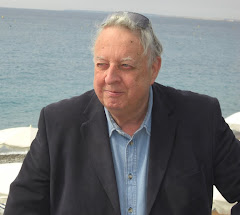I complain often about
the conservatism and lack of ambition by violinists or impresarios
when it comes to violin concertos. We hear the same old 12-15
concertos season after season. A friend recommended to me a recording
of the first violin concerto of Joseph Achron, dating from
around 1926. Achron – a violinist – would seem to have written
three violin concertos (the third being commissioned by Heifetz). A
search of the web suggests that only one of his concertos, the first,
has ever been recorded; and recorded once only, 19 years ago by Elmar
Oliveira. Hard to understand. Achron's musical language in the
first concerto reminds me of the concertos of Aram Khatchaturian and
Otar Taktakishvili; friendly folk-based music from down there in
Armenia, Georgia, etc. Nothing to frighten audiences or record
buyers. Plenty of playing to enjoy. Maybe, like many concertos
written by violinists for violinists, the orchestra has a bit of a
nominal role. However, in this one recording of this one of Achron's
violin concertos, Oliveira seems to play well and with enthusiasm. I
enjoyed listening and, after having now listened twice, I'll be sure
to listen again at some time.
Liner notes and
booklets always seem designed to annoy me, even when I have enjoyed
the music and the playing. I do so dislike labels. Joseph
Achron grew up in Europe, with a solid European background in Russia
and Germany. He served in the Russian army in the first world war. He
didn't go to America until he was 39 years old. Nevertheless, Naxos
labels him as an “American Classic”, complete with American flag.
Joseph Achron was no more a product of America than was Joseph Stalin. As if that is not
enough, the CD is also labelled “American Jewish Music”. I
dislike labels. Are we to have a series of “the five greatest
Lesbian pianists”? Or “the three greatest Protestant composers”?
Or “the greatest Nordic-Teutonic violinist”? It is said that
Erica Morini (or was it Ida Haendel?) rightly objected when a newspaper critic labelled her as
“a major woman violinist”. Music is independent of sex,
language, religion, race or nationality, which is one of its
strengths. Let us keep it that way.
